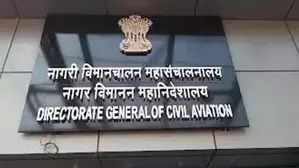
The Directorate General of Civil Aviation (DGCA) has enacted substantial changes to the regulations governing Flight Duty Time Limitations (FDTL) for flight crew. These revisions, aligning with global best practices, aim to effectively manage fatigue-related safety risks in aviation, a critical aspect for over a decade. The intent is to bolster flight safety, counter pilot fatigue, and harmonize these measures with the anticipated growth in India‘s aviation sector.
These revised FDTL regulations, effective immediately, necessitate compliance from airline operators by June 1, 2024. This timeline allows operators to adapt to the changes, accommodating logistical, systemic adjustments, and associated arrangements arising from the amended regulations.
DGCA’s approach hinges on data-driven strategies to tackle pilot fatigue concerns. It involved comprehensive analysis of pilot rosters and fatigue reports submitted by airlines. This scrutiny identified key fatigue-inducing factors like Flight Duty Period duration, Night Duty, Weekly Rest Period, and Flight Duty Period Extension.
The reforms were shaped by extensive data analysis and input from stakeholders such as airline operators, pilot associations, and individuals. They also drew from global best practices, considering the FAA (USA) and EASA (EU) standards while factoring India’s unique operational environment.
Notable Highlights of the Revised FDTL Regulations include extended Weekly Rest Periods. In this, Flight crew is now mandated to have increased weekly rest from 36 to 48 hours, facilitating better recovery from cumulative fatigue.
The night period now spans 0000-0600 hours instead of the previous 0000-0500 hours, aligning with the Window of Circadian Low (WOCL) from 0200-0600 hours, crucial for optimal alertness.
For operations during the night, regulations now cap maximum flight time and flight duty periods to 8 and 10 hours respectively. The number of landings has been limited to two, enhancing overall flight safety during night operations.
Furthermore, DGCA has mandated quarterly fatigue reports from all airline operators, emphasizing a non-punitive and confidential approach.
Looking ahead, DGCA intends to implement a Fatigue Risk Management System (FRMS). This data-driven approach aims to intensify monitoring and reporting of flight crew fatigue. Successful FRMS implementation requires collaboration among various stakeholders—regulators, airline operators, and flight crew—to ensure stringent adherence to the framework.




